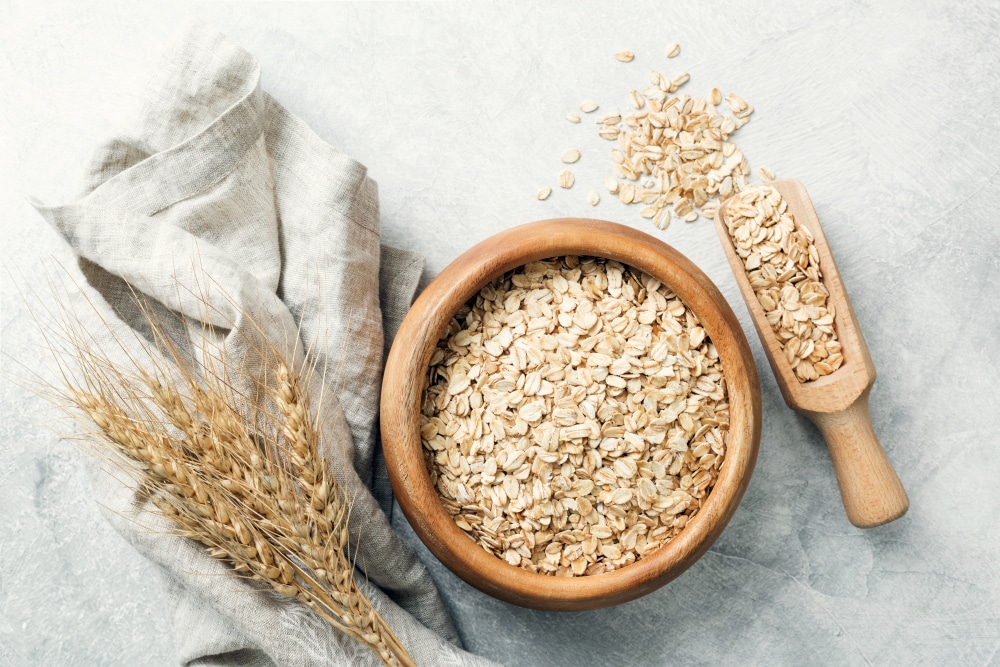Nowadays, gluten intolerance is no longer a rarity. What exactly are the triggers and why gluten intolerance occurs more often is still being discussed and experts still disagree on this. In addition to gluten, amylase trypsin inhibitors (ATI), which are used as a defense against pests, parasites and fungi, could also be a possible cause of this.
What is gluten?
Gluten, also known as gluten protein, is a collective term for a mixture of proteins found in the seeds of some cereals. Gluten is found in wheat, barley, oats, rye and their hybrid varieties such as einkorn, spelt, emmer, kamut, green spelt and triticale.
What are the symptoms of gluten intolerance?
Those affected usually suffer from physical, psychological or neurological complications, hours or days after eating gluten-containing foods. Symptoms range from general digestive problems to mood swings and muscle weakness. Also abdominal pain, flatulence, bloating, nausea, constipation, diarrhea, headaches, migraines, fatigue, weakness, bone and joint pain, muscle weakness, skin rash, mood swings, irritability, depressive mood and anemia can occur.
How is gluten intolerance diagnosed?
Gluten intolerance can only be diagnosed by exclusion, i.e. if neither a wheat nor a gluten allergy (celiac disease) can be diagnosed and the suffered symptoms improve quickly with a gluten-free diet, it is usually a gluten intolerance.
What is the difference between gluten intolerance, wheat allergy and celiac disease?
In all 3 diseases there is an intolerance to gluten, but the body reacts differently to each of them. An allergy is a “mistake” of the immune system. The immune system forms antibodies against harmless foreign substances. When allergic to wheat, the immune system reacts inappropriately to the actually harmless protein components of wheat. The allergic reaction only occurs when the ingested wheat-containing food is digested in the small intestine. In celiac disease, the consumption of gluten-containing foods leads to the formation of antibodies in the blood and damage to the mucous membrane of the small intestine. In contrast to wheat and gluten allergies, gluten intolerance does not lead to the formation of antibodies. Through avoiding gluten-containing foods, the symptoms can be controlled.
What helps against gluten intolerance?
In contrast to celiac disease, gluten intolerance does not require strict adherence to a gluten-free diet. However, it is advisable to avoid foods containing gluten, as a quick improvement of the symptoms is usually the case.
With an intolerance to gluten, it is advisable to take probiotics because they specifically support the intestinal flora.
The gastrointestinal mucosa protects the body from harmful substances. However, if the function of the intestinal mucosa is impaired or there is a disorder of the mucosal barrier function (“Leaky Gut Syndrome”), this leads to an increased permeability of allergens, toxins and pathogens. Inflammations and immunological stress reactions result, and a number of complaints which can develop into chronic diseases occur.
Glutamine is considered the most important nutrient for the healing of Leaky Gut Syndrome. L-Glutamine is the most common unbound amino acid in the human body and is conditionally essential. If the level of serum glutamine is too low, inflammation, intestinal barrier disorders and diarrhea in children can occur.
In certain circumstances, such as operations, injuries, burns or serious illnesses, the body may produce too little L-glutamine, which is why external supplementation is necessary. Clinical observations and experimental studies show that glutamine plays a crucial role in maintaining and restoring intestinal barrier function.
Studies suggest that low dietary fiber intake may be a cause of chronic inflammatory bowel disease. Dietary fibers make an important contribution to intestinal health, as their polysaccharides are indigestible food components that serve as food sources for some types of intestinal bacteria. Several studies have shown that these bacteria use an alternative food source in an extremely low-fiber diet and degrade polysaccharides in the mucus that lines the inner wall of the intestine.
A gluten-free diet can result in an undersupply of vitamins and nutrients.
Does gluten intolerance lead to a micronutrient deficiency?
Based on several long-term studies in different countries, it has been established that the main deficiencies are vitamin B12, vitamin B6, vitamin D, calcium, iron, folic acid, magnesium, niacin (vitamin B3), riboflavin (vitamin B2), thiamine (vitamin B1) and zinc. Additionally, those on a long-term gluten-free diet usually suffer from an undersupply of dietary fiber; if mainly gluten-free finished products are consumed, which often consist primarily of starch. It is therefore advisable to replace gluten-free finished products with so-called pseudo-cereals such as amaranth, buckwheat, quinoa, sorghum and teff. Further studies have shown that the consumption of pseudo-cereals significantly improves the absorption of fiber, calcium and protein in patients with gluten intolerance. Those on a gluten-free diet are therefore advised to regularly check their supply of nutrients.



